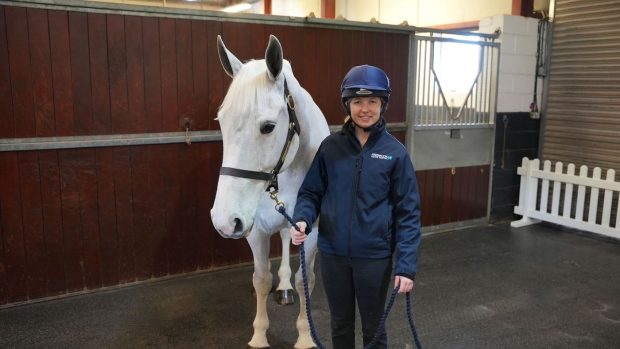New guidelines on equine worm control have been launched – with the warning: “If horse owners don’t make these changes now, it will be too late.”
Cross-sector group CANTER (Controlling Antiparasitic resistance in Equines Responsibly), has published a “crucial” document setting out key principles, to support vets, pharmacists and SQPs (suitably qualified persons) in prescribing and recommending suitable parasite control strategies.
The guidance, written by vets, parasitologists and other experts, is aimed at tackling the increasing threat of wormer resistance. H&H has reported that there has been resistance recorded to all the classes of wormers available, with no prospect of new drugs.
CANTER veterinary representative and equine internal medicine specialist David Rendle said: “Anthelmintic resistance represents a huge threat to equine health and welfare. Universal adoption of a diagnostic-led approach to parasite control and a dramatic reduction in the use of anthelmintics is what’s needed to address this and, I hope, what CANTER will provide the impetus for.
“If horse owners don’t make these changes now, it will be too late.”
CANTER chair and Veterinary Medicines Directorate international programme manager Alison Pyatt said publication of the guidance is a “seminal moment in the life of CANTER and our work to address the very real threat posed by anthelmintic resistance”.
“To achieve industry-wide consensus on such a complex and important area of equine health is hugely rewarding,” she said. “We draw collaborative expertise from international authorities on equine health and parasitology, to promote a consistency in approach across prescriber groups that has never been done before.
“Our intention is for them to be a free, easily accessible, live resource that underpins our first aim, to support prescribers with practical, evidence-based principles to slow wormer resistance.”
The clear overall message is that repeated blanket treatments for drug-resistant worms should be avoided. Prescribers are urged to apply field and horse management strategies to reduce parasite infection and break worms’ transmission cycles, use tools such as worm egg counts and “apply a risk-based approach to estimate parasite transmission potential in individual horses”.
World Horse Welfare CEO Roly Owers said: “Antiparasitic resistance is a critical and growing threat to equine health and welfare, so the publication of the CANTER guidelines is a huge step forward in tackling this crisis. We have no doubt that the much-anticipated publication of the guidelines will be essential in promoting clarity and consistency in the approach to sustainable equine parasite control.”
The group’s next priority is to develop resources for horse owners.
Visit: canterforhorses.org.uk
- To stay up to date with all the breaking news throughout Maryland 5 Star, Pau Horse Trials, London International and more, subscribe to the Horse & Hound website
You may also be interested in:

Horse & Hound’s essential guide to worms and deworming

Westgate Labs Horse Worm Egg Count Kit *H&H Approved*
£9.95

Owners warned of potential equine welfare ‘disaster’ if no action is taken

EquiSal Tapeworm Test review *H&H Approved*
£20.50

Subscribe to Horse & Hound magazine today – and enjoy unlimited website access all year round





